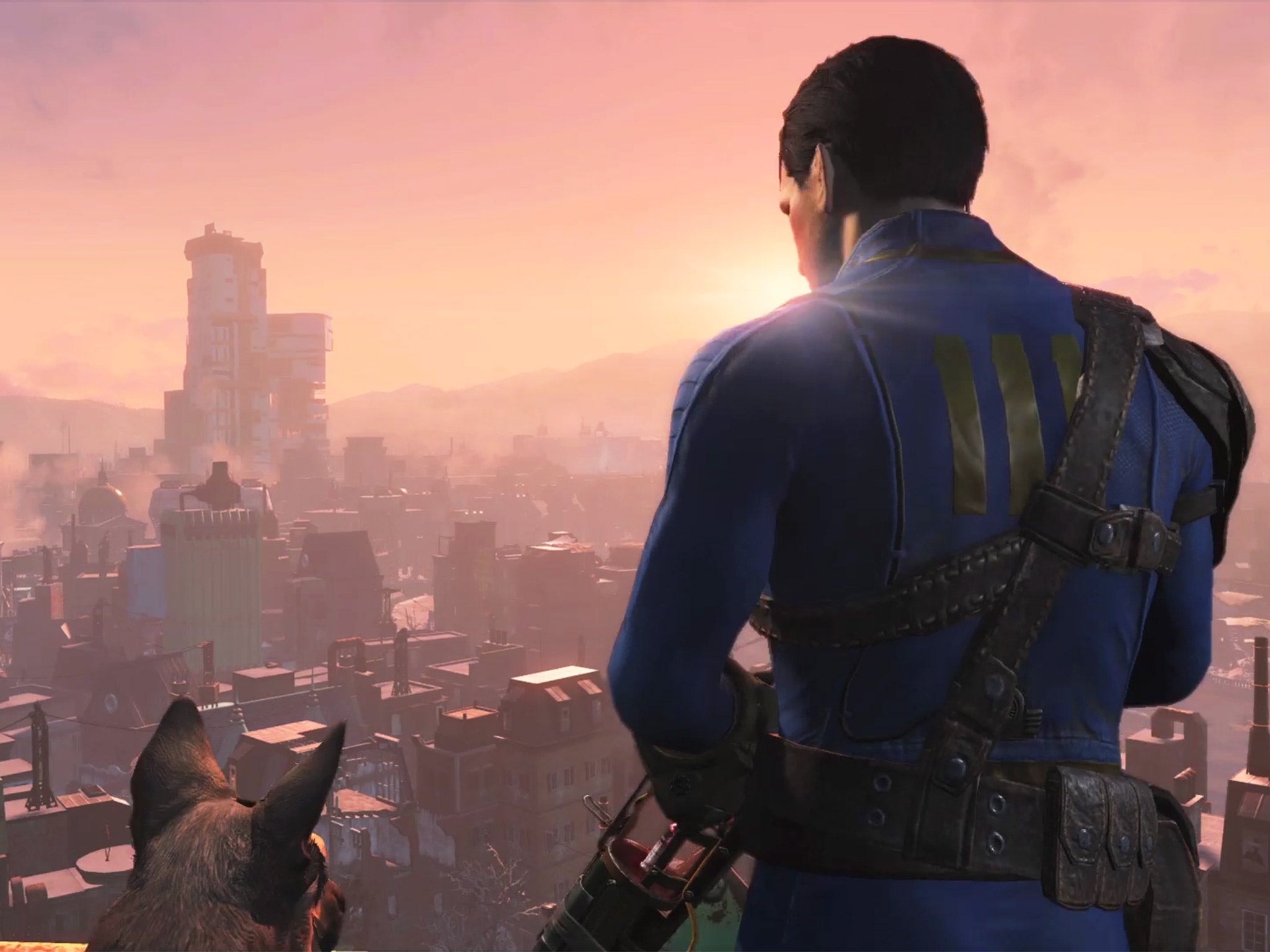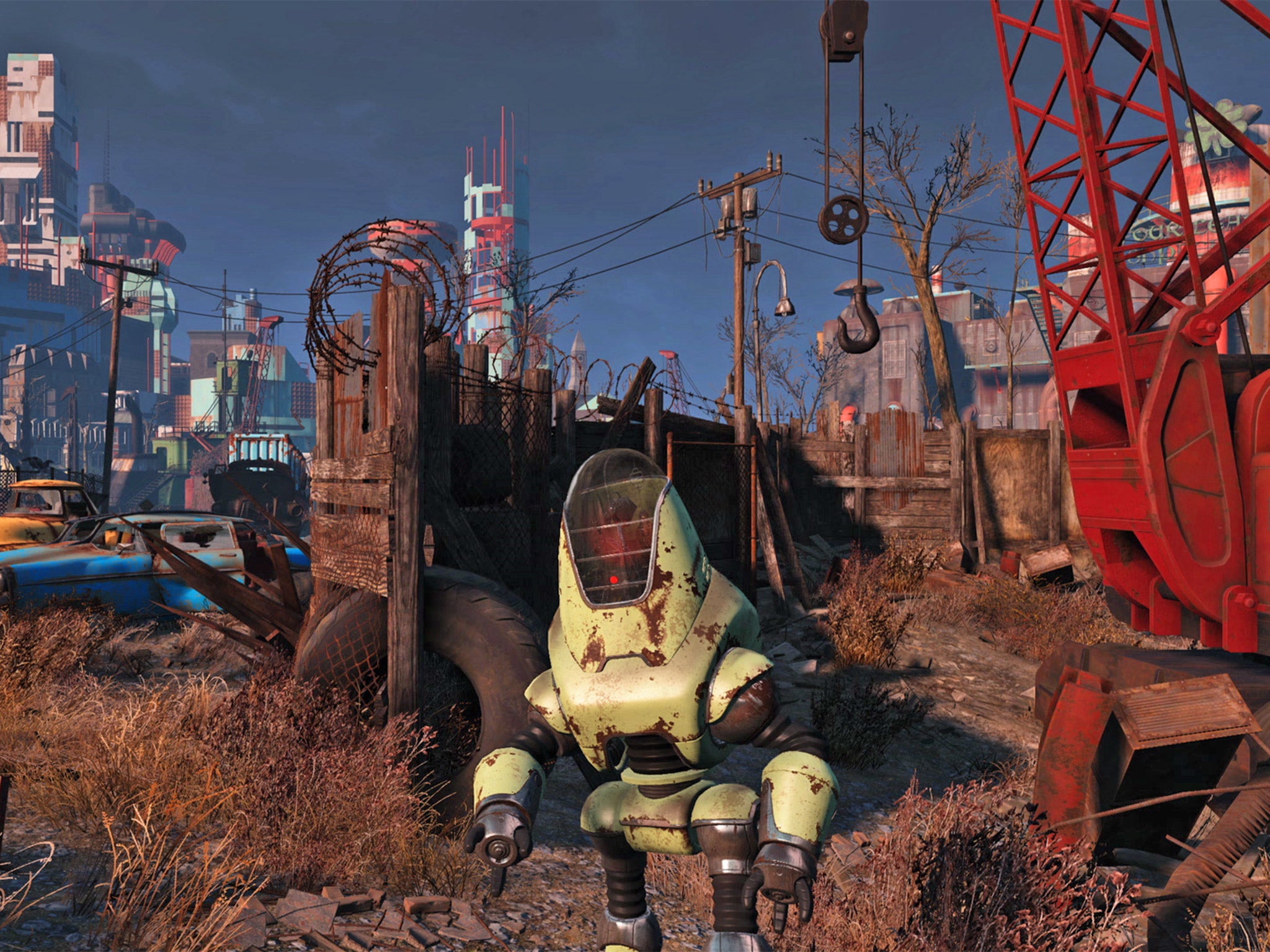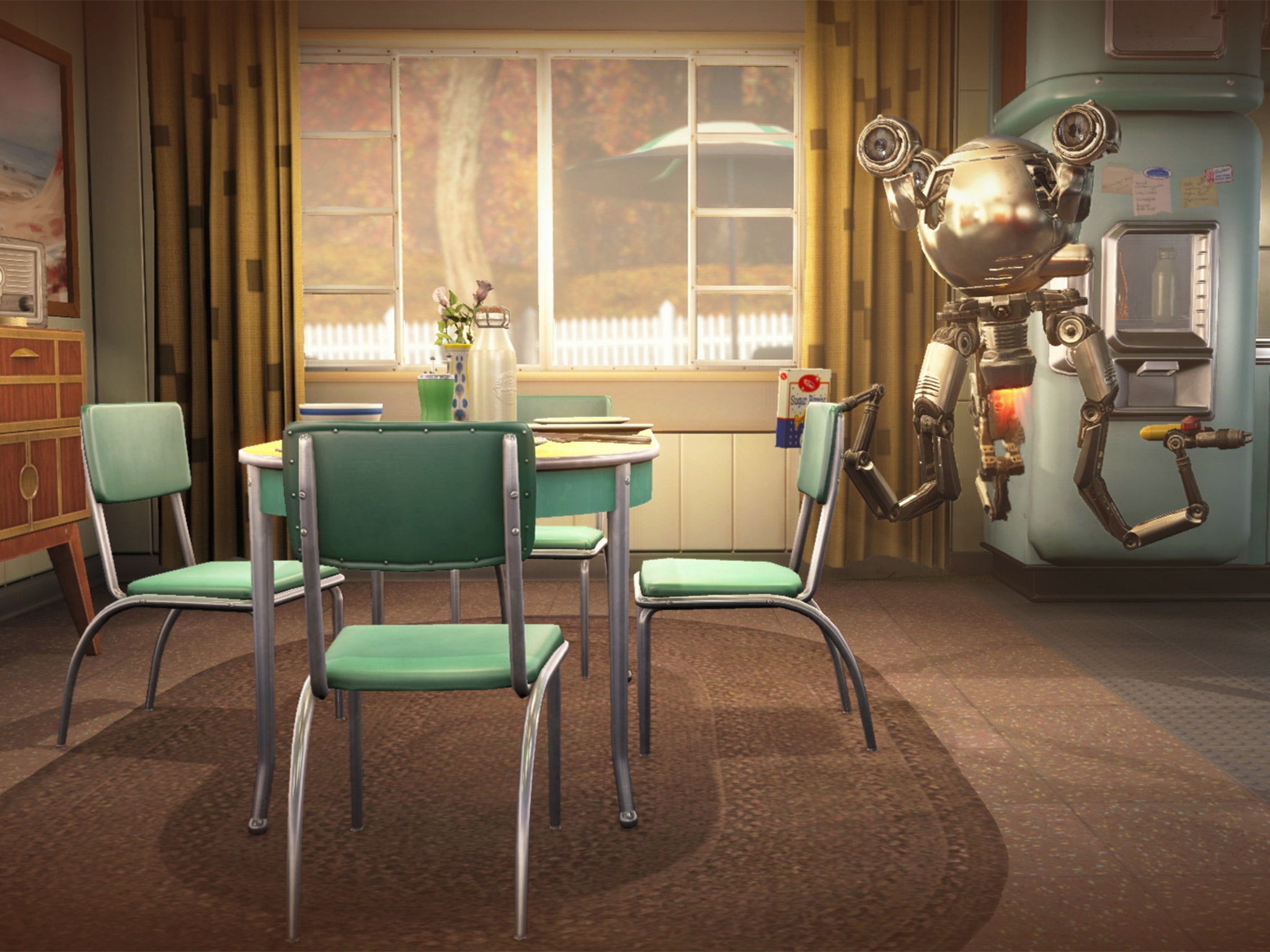Fallout 4 is one of the most visually-striking computer games ever made - but is it a work of art?
The game combines studies in landscape and sculpture with narrative arcs that probe the depths of the human condition

Your support helps us to tell the story
From reproductive rights to climate change to Big Tech, The Independent is on the ground when the story is developing. Whether it's investigating the financials of Elon Musk's pro-Trump PAC or producing our latest documentary, 'The A Word', which shines a light on the American women fighting for reproductive rights, we know how important it is to parse out the facts from the messaging.
At such a critical moment in US history, we need reporters on the ground. Your donation allows us to keep sending journalists to speak to both sides of the story.
The Independent is trusted by Americans across the entire political spectrum. And unlike many other quality news outlets, we choose not to lock Americans out of our reporting and analysis with paywalls. We believe quality journalism should be available to everyone, paid for by those who can afford it.
Your support makes all the difference.The air-raid siren wails. Its shriek drowns out the screams on the street. You clutch your wife's hand and run to the shelter. This is not a drill. The bombs are coming. The door to the shelter won't open. This is not a drill.
A flash, so bright you see the bones of your hand, and a violent, invisible force that throws you to the ground. Darkness. A terrible heat follows. A hatch opens beside you. You fall in. You smell smoke and singed hair. Your last thoughts are of your wife: Did she hold our baby tight? Blackout.
Fallout 4 – one of the most highly anticipated video games of the past decade – is set in a post-apocalyptic wasteland outside Boston. The action takes place 200 years after a nuclear holocaust. Players assume the role of survivors who return to the surface after being frozen in a vault. They squint into the sun as the vault door creaks open, tasked to explore this bizarre world.

The opening scene is just a taste of what Fallout 4's creator, Bethesda Game Studios, has spent seven years designing. The game features 110,000 lines of spoken dialogue (the script of Apocalypse Now is about 7,500 lines). It's estimated that players will have 30 square miles to explore, including a layout of what Boston would look like if it survived a nuclear war.
Fallout 4's aesthetic cheekily evokes 1950s-era sci-fi and the naivety of early Cold War–era pop culture. The soundtrack, which will be available on vinyl, runs the gamut from malt-shop hits to classical music to burn-in-the-fires-of-nuclear-hell gospel. Robots look more Ed Wood than Michael Bay, and in-game tutorials mimic the tone of those "duck and cover" safety films.
It's one of the most visually striking and narratively immersive games ever made. But despite its many artistic elements, some critics are hesitant to consider a video game a work of art. In 2005, the film critic Roger Ebert wrote that "no one in or out of the field has ever been able to cite a game worthy of comparison with the great dramatists, poets, filmmakers, novelists and composers." Ebert argued that games are played while art is not, and that games are created to make money, not emotions.
The rebuttal to Ebert's argument comes, surprisingly, from Supreme Court Justice Antonin Scalia. In 2011, he wrote the majority opinion for Brown vs EMA, a case about a California law that banned the sale of video games to minors. Video game fans latched on to the passage that read, "like the protected books, plays, and movies that preceded them, video games communicate ideas – and even social messages – through many familiar literary devices…. That suffices to confer First Amendment protection."
For Todd Howard, the executive producer of Fallout 4 and the head of Bethesda Game Studios, there is only one reason some people wouldn't consider video games to be art. "They haven't played the right game yet,"
Ebert eventually hedged a little. "It is quite possible a game could someday be great art," he wrote in 2010 in the self-effacing editorial "Okay, Kids, Play on My Lawn". Ebert's caveat was that no game had yet met the criteria for popular art.
Does Fallout 4 ? It is certainly popular. Poised to be one of the best-selling and most critically acclaimed video games of the decade, it's the biggest project to date for Bethesda. The developer's 2011 fantasy epic The Elder Scrolls V: Skyrim sold more than 18 million copies worldwide while Fallout 3, released in 2008, has sold roughly 10 million. Both titles won game of the year at the Game Developers Choice Awards, an annual gathering of industry leaders.
Chris Melissinos, curator for the Smithsonian American Art Museum exhibit "The Art of Video Games," says video games must be art because they are made of art. "Inside a game like Fallout 4, you can observe landscapes and sculpture and orchestration and narrative arcs and principles of design," he says. "All of these things that, on their own, we put on a pedestal."
Howard explains how the team attempted to make Fallout 4 an immersive, artistic experience. "We look for elegance. Not simplicity," he says. "What we're trying to do is... put you in another world."
In Fallout 4, the players make ethical decisions and determine moral consequences – often within classic sci-fi scenarios. If a robot looks human, acts human and thinks it's human, should it be treated like a human? Do colonies of irradiated lepers deserve to live in isolation or does the threat of a pandemic justify genocide?
These moments are full of what Scalia called "social messages" and are born of literary devices as old as Karel Capek's self-aware automatons in the play RUR – which premiered in 1921 – or in the post-apocalyptic plague survivor Lionel Verney from Mary Shelley's 1826 novel, The Last Man.
Howard compares the experience of playing the game to watching a film. "In an open game like ours, the player becomes the director." And where critics like Ebert might argue that if a creator gives up control there is no artistic merit, the concept of participants changing the outcome of a work encompasses elements of performance art dating back to at least the 1960s, when Brazilian theatre director Augusto Boal invited his audience to become "spect-actors". Boal's typical performances involved a scene in which a character was oppressed by an antagonist, and audience members were invited to pause the scene, replace the victim on stage and change the narrative in a way that resolved the conflict in the hero's favour. Sounds like a video game.

Howard says video games also have a unique emotional advantage over other media. "There is the range of emotions lots of entertainment can give you, from fear to excitement to sadness," he says. "Games can do that. But the one emotion that only games can [create] is pride. Pride in what you accomplish."
Fallout 4's creators believe that games will prove their artistic merit. "There's no question what we do is art. And it's an evolving art, as all art over the ages has been," says Istvan Pely, the game's art director. "It takes time to gain acceptance, but I think this will become the main medium for people to be entertained and to explore the human condition. Which is what art is all about – making people feel and experience things."
Melissinos, who included Fallout 3 in the Smithsonian exhibit, agrees. "It's a variety of all the different art forms," he says. He adds, somewhat loftily, that games represent "the apex" of everything humans know about art at this point in the culture. "Video games are not only an art form; they are one of the most important art forms that have ever been at the disposal of mankind."
Unlike other art forms, though, video games are not built to last – technology fades at a much faster rate than plaster and ink. So while critics nitpick the lost meaning of a coloured slab of dead wood, let's take time to engage the greatest entertainment technology of our era – regardless of whether it deserves space in a museum.
© Newsweek
Join our commenting forum
Join thought-provoking conversations, follow other Independent readers and see their replies
Comments